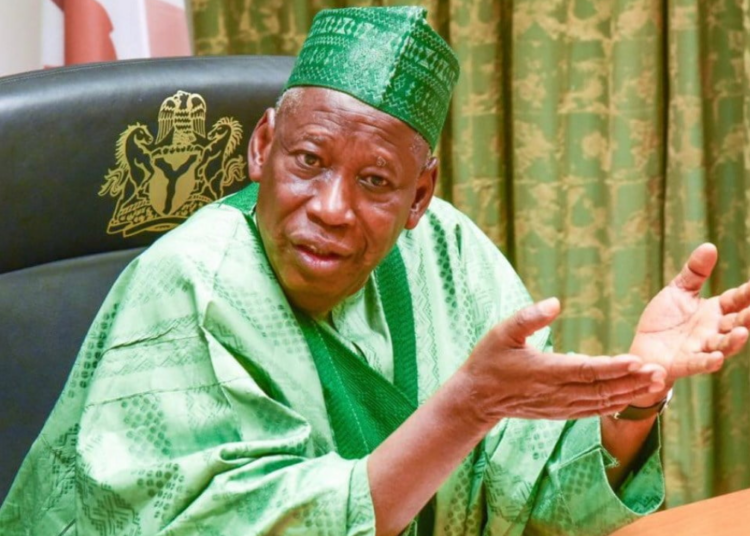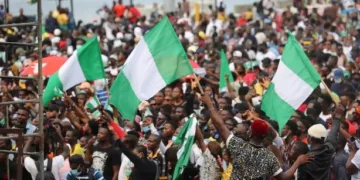Nigeria is becoming a study in what democracy is not. What is practised in this country is, at best, a parody of the real thing that guarantees the greatest good to the greatest number. And it did not start with this dispensation. Under the military strongman, the late General San Abacha, who wanted to transition to a civilian dictatorship, some self-confessed democrats at that time, for reasons related to selfish political and pecuniary interest, openly declared that they did not mind a one-party arrangement.
The Peoples Democratic Party (PDP) tried it in the ongoing Fourth Republic, and that ended its envisaged 60-year run, which is threatening to consign it to the scrap heap of history. The All Progressives Congress (APC) is toying with a one-party state if its chairman, Dr Abdullahi Ganduje’s recent public statement is anything to go by. He was quoted as suggesting that a one-party system in Nigeria might not be a bad idea. The APC national chairman reportedly urged opposition parties to “melt into” the APC. The former Kano State governor has not denied this comment, which is, in our opinion, unfortunate and ill-advised.
Expectedly, this remark that goes against acceptable democratic principles is generating heated controversy. A familiar trend further complicates the situation: opposition politicians are embarking on a frenzy of decamping to the ruling party, not necessarily out of ideological conviction but as part of an effort to save their political skins bruised by corruption, which a move to the ruling party can guarantee. At least that was the promise given to them by those encouraging them to jump ship.
Through these shenanigans, the ongoing democratic experiment seems to be on the verge of being scuttled. The system that preaches the multiplicity of viewpoints and avers that the minority must have its say and the majority its way is indecently being excoriated and devalued.
It is on record that a one-party arrangement attenuates the electorate’s legitimate aspirations, disenfranchises them, limits their options, and effectively denies them the right to choose their leaders freely and fairly. Historical attempts at one-party rule in Nigeria have often led to instability and authoritarianism. And it is said that those who fail to learn the lessons of history are condemned to repeat its mistakes.
Political theorists argue that democracy ensures legal equality, human rights, social justice, political and other fundamental freedoms, and the rule of law. These are the foundational characteristics of a well-functioning democracy, as typified by the system practised in the United States of America (USA), from which we borrowed the presidential version we are experimenting with. They are also antithetical to dictatorship, which a one-party system promotes and sustains.
One of the problems with Nigeria, as the famous writer, Chinua Achebe, espoused, is leadership. Consistency and integrity are not the strong fort of the politically exposed persons in the country. They flow and ebb like the ocean waves, provided their warped definition of interest is adequately served, no matter how short-lived. Nigeria’s political leaders, when it suits them, claim to be democrats even as they don’t understand the rules guiding the system. This is more so when they are out of power and seeking ways to take control. Once in office, due to failure on their part to provide good governance, they begin to design ways of perverting due process to retain the political position they have not earned.
We are concerned that the APC chairman is misreading the political barometer by his claims that defections reflect public trust in the APC. This assertion flies in the face of the reality Nigerians are exposed to on the party’s watch. We are aware of allegations of coercion and inducements influencing these political shifts. We are also mindful of the fact that the defections are influenced by fears of a geopolitical nature tainted by ethnic considerations.
Curiously, Ganduje admires the Chinese brand of one-party state. In China, corrupt politicians are lucky to escape the death penalty – minor offences like bribery and stuffing one’s pocket with unearned dollar bills can land them in jail for long terms. Nigerians will be happy to have the Chinese-style one-party state entrenched in the country. Under that system, all the politicians in Nigeria, ruling and in opposition, will either be in jail or sent to the electric chair.
Therefore, we are persuaded to appeal to the National Assembly to grant Ganduje his wish by amending the 1999 Constitution and establishing a China-style one-party state with all the rules in place. Perhaps that will bring about the sanity so lacking in this fake democratic system that has become a curse.
Until that is done, we urge those calling for a one-party state to cast their minds back and take note of the struggle that brought about the present democratic dispensation. The blood that was shed, the disruptions in the lives of the people and the sacrifices made by Nigerians to get a say in who governs them. A multi-party system may be imperfect. There is no perfect system anywhere. It may be fledgling; those admiring chaos must realise that building a system that lasts and endures, takes time and effort.





